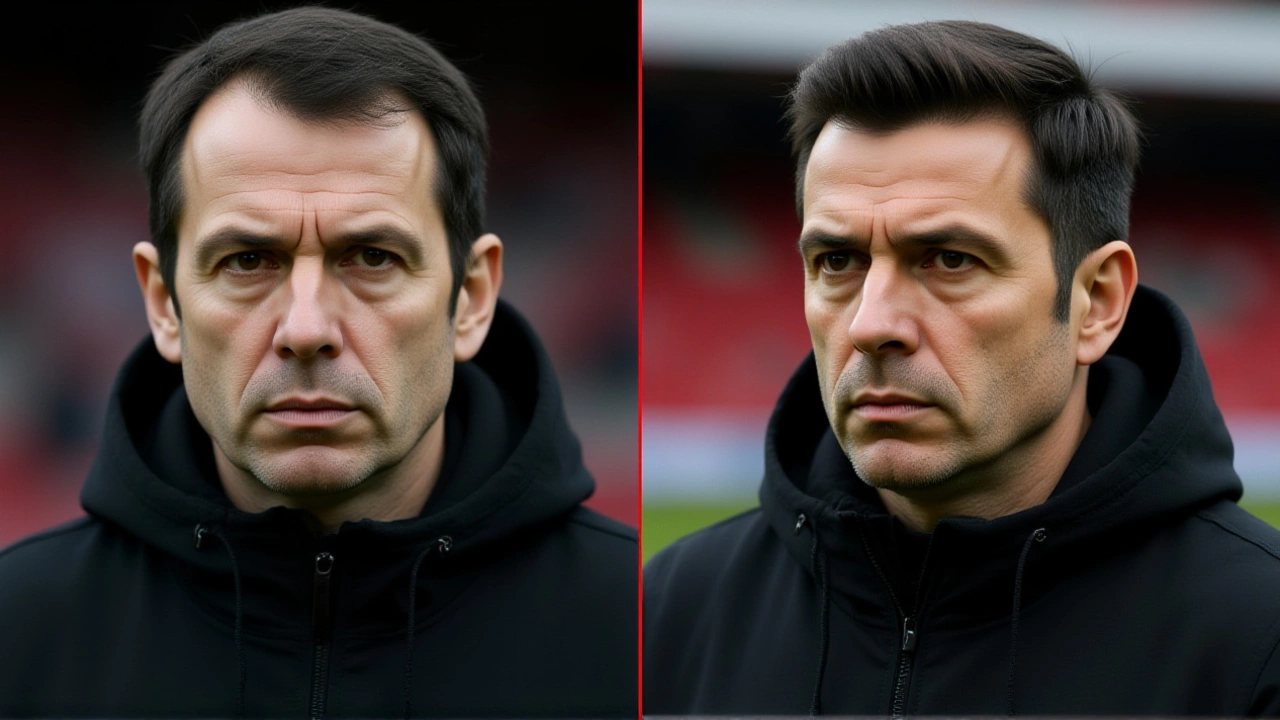When the Premier League quietly opened a formal review into the financial practices of Fulham FC and Sunderland AFC, few expected it to escalate into a potential points deduction or transfer ban. The investigation, confirmed by league insiders on November 15, 2025, centers on whether both clubs exceeded the Premier League’s Profitability and Sustainability Rules — specifically, the £105 million loss cap over the 2022–2023 to 2024–2025 seasons. The timing is striking: just weeks after Everton FC was handed a 10-point penalty in November 2023, and as financial pressures mount across the top flight.
What Triggered the Investigation?
The probe didn’t start with a whistleblower. It began with a routine audit of third-party ownership agreements and sponsorship deals that appeared unusually inflated. For Fulham FC, investigators zeroed in on a £42 million sponsorship deal signed in July 2023 with a Dubai-based entity linked to owner Shahid Khan’s global business network. The payment was structured as a multi-year marketing contract, but internal documents suggest much of the funding flowed back into the club through consulting fees to shell companies.
Meanwhile, Sunderland AFC drew scrutiny over a £38 million investment from 777 Partners — the U.S.-based consortium led by Josh Harris and David Blitzer. The funds were labeled as equity injections, but the timing — just before the club’s promotion push in the 2024–2025 Championship season — raised red flags. One league official, speaking anonymously, said: “It’s not the amount alone. It’s the pattern. Two clubs, both outside the traditional top six, suddenly spending like they’re chasing Champions League money.”
Historical Precedents and the Stakes
The Premier League has been tightening its financial grip since the 2011–2012 season, when the Profitability and Sustainability Rules replaced the original Financial Fair Play framework. Since then, 14 clubs have been investigated, with 11 sanctioned — most notably Portsmouth FC in 2010, which was docked nine points and relegated after entering administration. But no club has faced a points deduction since Everton FC in 2023.
What makes this case different is the scale. Fulham FC reported pre-tax losses of £98 million over the three-year window — just £7 million under the cap. But with the disputed sponsorship deal included, the total could breach £110 million. Sunderland AFC reported £92 million in losses, but the £38 million equity injection may be reclassified as a loan, pushing them over the limit.
Club Responses and Fan Reactions
Fulham FC issued a terse statement: “We fully cooperate with the Premier League and maintain that all transactions comply with regulations.” But behind closed doors, sources say the club’s finance team is scrambling to restructure contracts before the final audit deadline on December 1, 2025.
Sunderland AFC has been quieter. The club’s board, still reeling from a 2024 relegation from the Championship, is terrified of a points penalty that could derail their promotion bid. At the Stadium of Light, fans have begun organizing “Financial Fair Play Watch” groups, posting spreadsheets online. One supporter, 42-year-old Mark Hargreaves, said: “We’ve waited 15 years to get back up. If they’re cheating to get there, I’d rather stay down.”

What’s Next? The Timeline and Possible Outcomes
The Premier League has until January 15, 2026, to issue its findings. Three outcomes are possible:
- Points deduction — Most likely if breaches exceed £10 million over the cap. A 6-point penalty would cripple Sunderland’s promotion hopes and drop Fulham from 12th to 18th.
- Transfer ban — If the league believes the breaches were intentional to gain competitive advantage, both clubs could be barred from signing players in the 2026 summer window.
- Financial fine only — Unlikely. The league has signaled it wants to send a message after the Everton case.
Adding to the tension: Richard Masters, the Premier League’s chief executive, is under pressure from other clubs to act decisively. “They’re watching this like hawks,” said one club director. “If they go easy on Fulham and Sunderland, the whole system collapses.”
Why This Matters Beyond Two Clubs
This isn’t just about Fulham or Sunderland. It’s about whether the Premier League can enforce its own rules when the stakes are high — and when the money comes from billionaires with global empires. Shahid Khan owns the Jacksonville Jaguars. Josh Harris owns the Philadelphia 76ers. Both are American billionaires who see English football as an investment vehicle.
For years, critics warned that the rules were too soft. Now, with inflation, inflated TV deals, and rising player wages, the gap between rich and mid-tier clubs is widening. If the Premier League fails to act, it risks becoming a two-tier league: one for the ultra-rich, and one for everyone else.
Frequently Asked Questions
How could Fulham and Sunderland have gone over the £105 million loss limit?
The Premier League’s rules allow £105 million in pre-tax losses over three seasons, but only if the money comes from legitimate sources like owner equity or commercial revenue. Both clubs are under scrutiny for transactions that may disguise external funding as commercial income — like Fulham’s Dubai sponsorship and Sunderland’s equity injection from 777 Partners. If reclassified as third-party influence or disguised loans, these could push their total losses above the cap.
What happens if either club is found guilty?
A points deduction is the most likely penalty — possibly 6 to 10 points — which could cost Sunderland their promotion hopes or drop Fulham into relegation danger. A transfer ban would also be possible, preventing both clubs from signing new players in summer 2026. Fines alone are unlikely, as the league wants to deter future violations. Expulsion is not on the table; no club has ever been kicked out of the Premier League.
Why is this happening now, and not earlier?
The Premier League only began full financial audits of all clubs after the Everton case in 2023. Previously, investigations were triggered by complaints or leaks. Now, with new data analytics tools and mandatory third-party disclosure requirements introduced in 2024, the league is proactively reviewing all clubs’ financial statements from 2022–2025. Fulham and Sunderland simply fell under the new scrutiny.
Could this affect the Premier League’s reputation?
Absolutely. If the league is seen as lenient with wealthy owners, trust in its fairness erodes. Fans, broadcasters, and even sponsors expect financial integrity. The Premier League’s global brand relies on the perception that success is earned, not bought. A failure to act decisively could fuel calls for a new regulatory body — or even a breakaway league by the top clubs.
Who has the final say in the outcome?
The Premier League’s Independent Commission, a panel of three legal and financial experts appointed by the league, makes the final ruling. While Richard Masters and his team investigate and recommend sanctions, they cannot impose them. The commission’s decision is binding and can be appealed to the Court of Arbitration for Sport — but only on procedural grounds, not the facts.
Is this related to the new Premier League financial rules coming in 2026?
Yes. The league is testing the current rules under pressure before rolling out stricter limits in 2026 — including a £60 million cap over three years and mandatory profit targets. The Fulham and Sunderland cases are being used as real-world examples to justify the tougher framework. If these clubs are punished, it signals that the new rules won’t be a soft landing — they’ll be enforced from day one.
